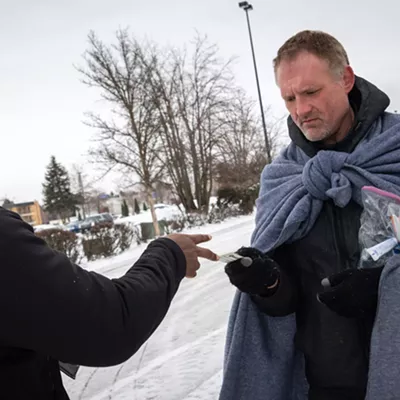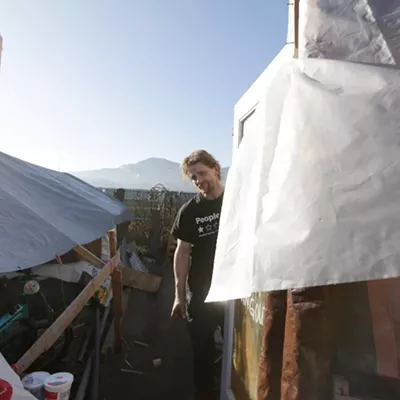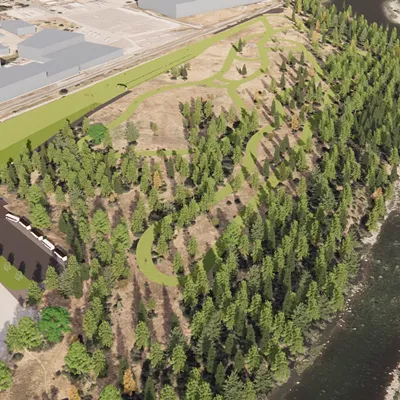Determining the likely severity of drought isn't a perfect science, but according to the Washington state Department of Ecology, most areas of Washington shouldn't face many drought-related challenges this summer. Ecology predicts existing water supply levels from analyzing the snowpack, precipitation and temperature throughout the winter. Snowpack melts in the warmer months and feeds directly into rivers and streams, making it an integral component for avoiding drought. In terms of precipitation, the west side of the state was drier and the east side was wetter than normal. Even with La Niña this winter, overall precipitation levels were lower than expected across the board. While winter temperatures were slightly higher than normal, February was ranked the 51st coldest since 1895, which helps prevent the snowpack from melting early. Overall, Ecology is "cautiously optimistic" about Washington's water supply levels. (SUMMER SANDSTROM)
CORRUPT CUSTODIANS
To ensure harsher punishment for corrections officers who abuse their power, state Sen. Mike Padden, R-Spokane Valley, has sponsored legislation to make custodial sexual misconduct a more serious crime. Padden took up the issue after learning about a guard who sexually assaulted and harassed women in the Forks city jail. The victims included Kimberly Bender, 23. She died by suicide in her cell after reporting harassment to officials, who said they couldn’t substantiate her claims. “I have no reason not to believe her,” Padden says. The guard, John Russell Gray, served only 13 months behind bars for sexual assault and harassment of four other women. “It seemed way too light for what happened,” Padden says. “Kimberly’s Law” will make first-degree custodial sexual misconduct (involving intercourse) a class B felony, punishable by up to 10 years in prison, and second-degree misconduct (involving sexual contact) a class C felony, punishable by up to five years in prison. Senate Bill 5033 has now unanimously passed both chambers and is headed to Gov. Jay Inslee’s desk to be signed into law. (SAMANTHA WOHLFEIL)
Editor’s note: The House hadn’t yet voted on Senate Bill 5033 when we printed this week’s issue, so we’ve updated the online version to better reflect the bill’s status.
FENCED IN
The Browne Street viaduct is only 100 feet from the House of Charity in downtown Spokane. For years, even when there were available shelter beds, people continued to sleep under the railway bridge. By August 2021, Spokane Police Chief Craig Meidl was brainstorming ideas to stop them. "I'm trying to think outside the box," Meidl wrote in an August 2021 email with the city administrator, which he handed over to business owners Chud Wendle, Sheldon Jackson and Chris Batten. "The concept of short benches lining the walls under the viaduct to prevent folks from camping out." Ultimately, the solution, launched in February 2022, was a bit more crude and less elegant: Chain-link fences erected on both sides of the street, giving just enough room for people to walk through, but not enough room to set up camp. Still, people in desperate situations — like during the cold snap and snowfall earlier this month — find a way. On March 12, a crowd of homeless people were sleeping inside the fencing. Someone had cut large holes in the fencing, enough to duck through and bring provisions and camping equipment. "The effectiveness of the strategy can't be [judged] on one day or one incident," says Brian Coddington, Mayor Nadine Woodward's spokesman. Within a few days, however, the holes had been repaired. Today, there are at least four separate "no camping" warnings flanking each side of the viaduct. (DANIEL WALTERS)





















